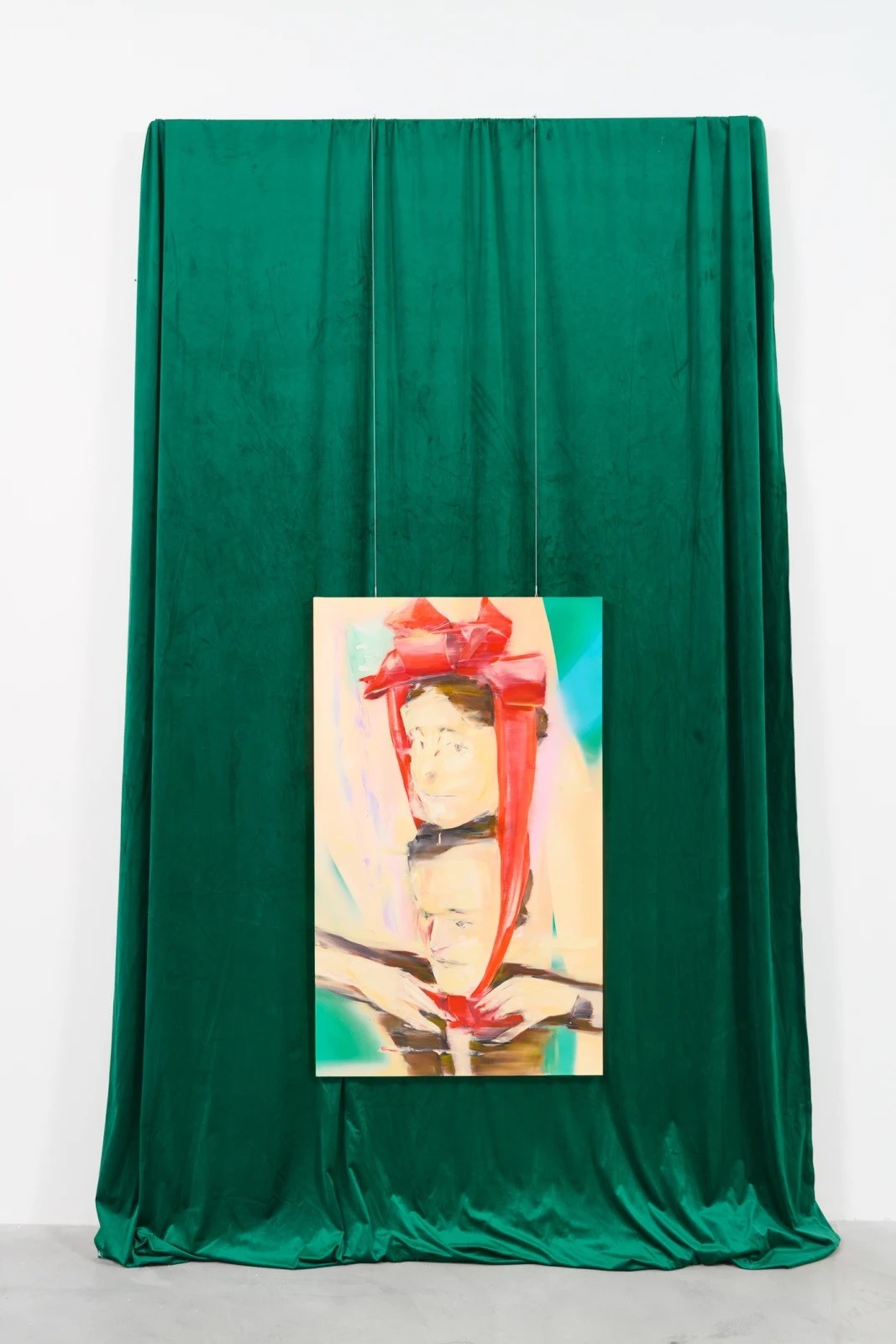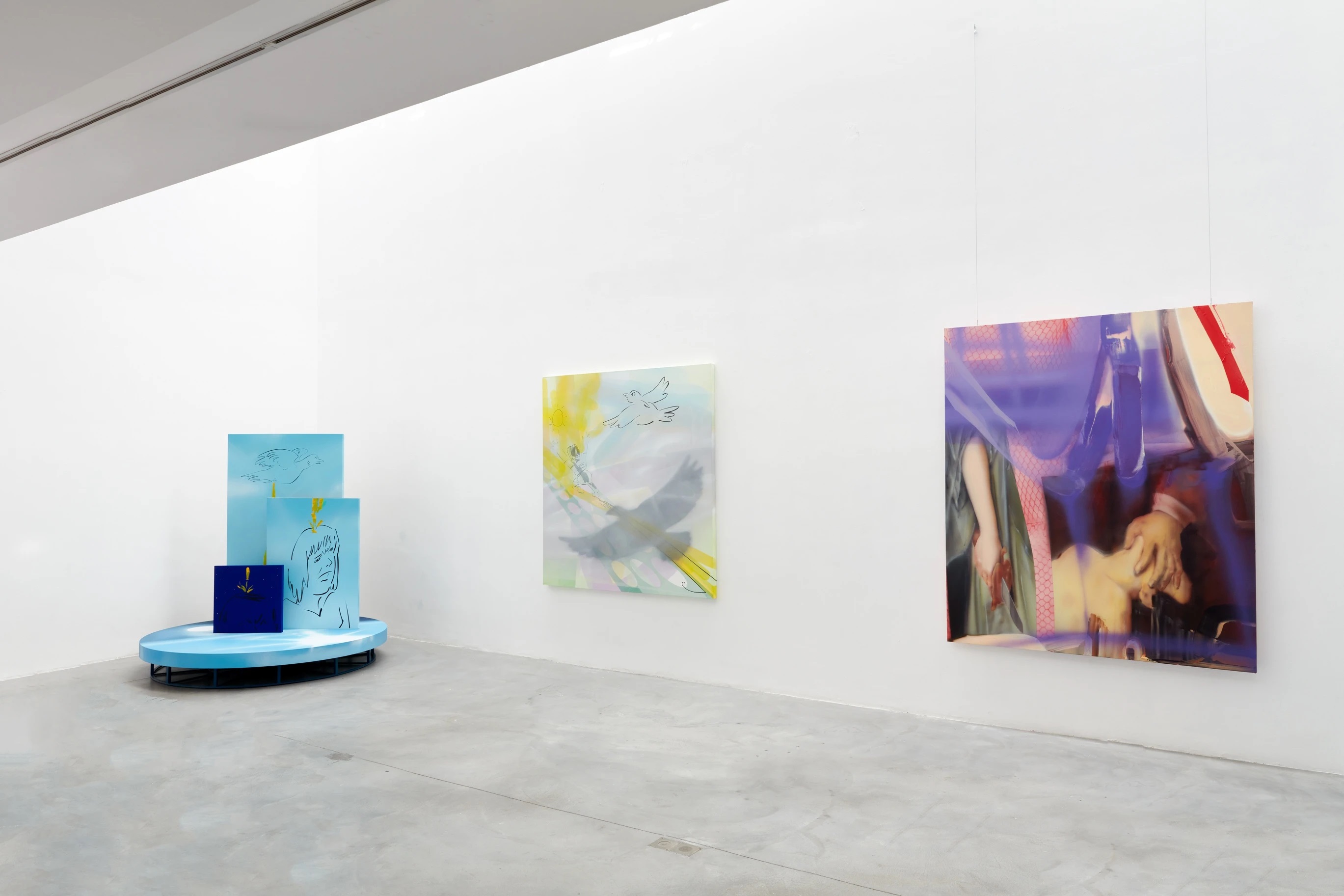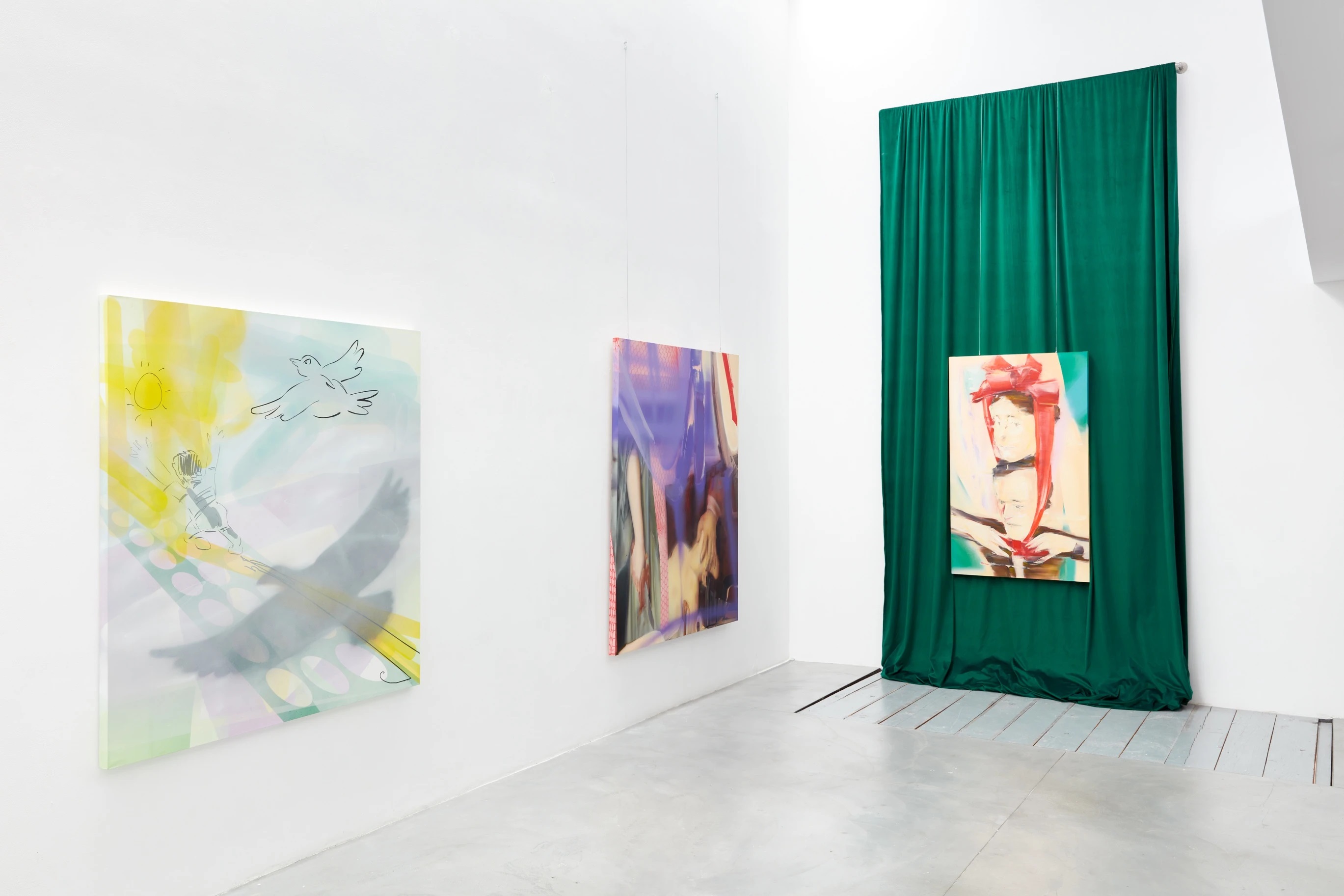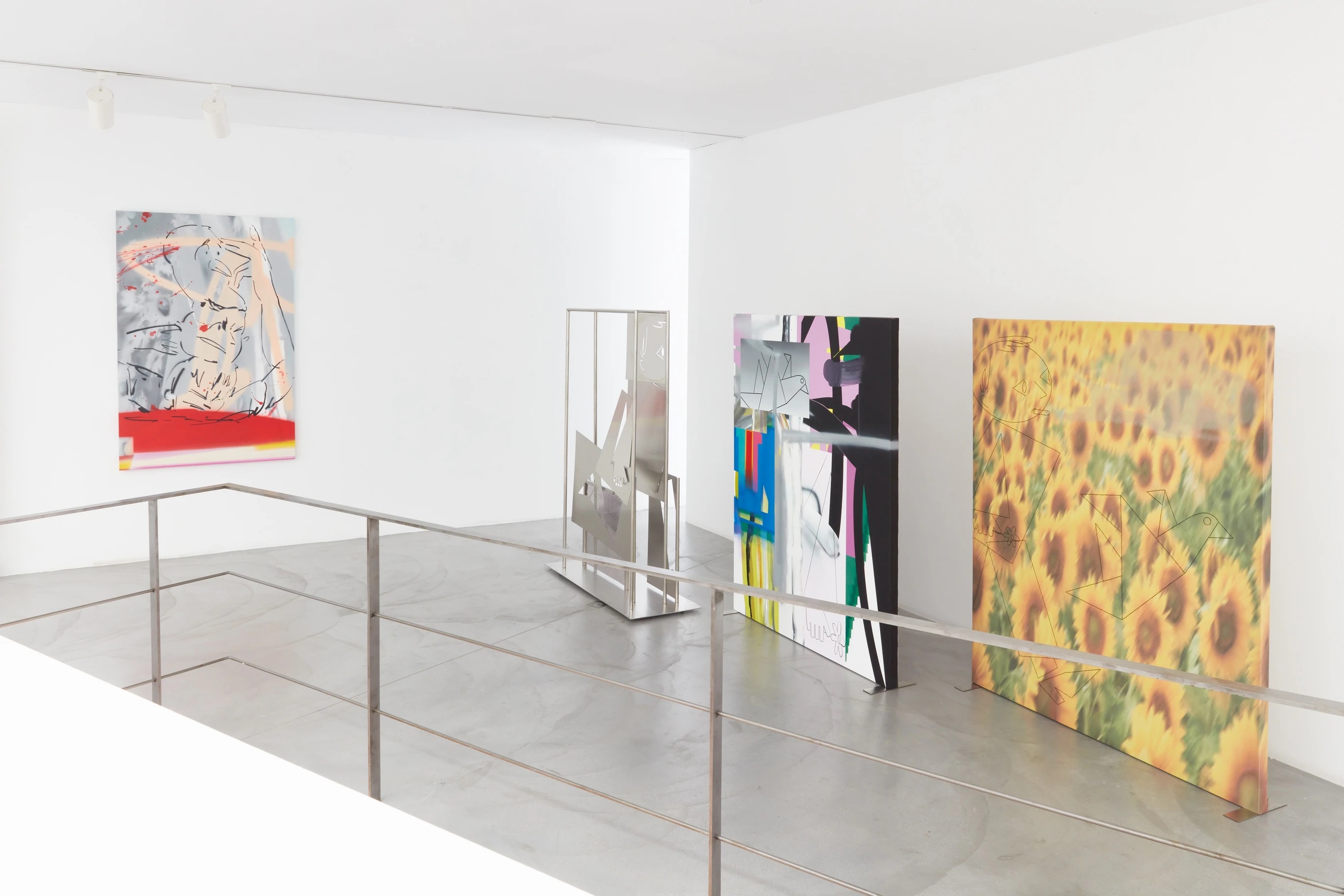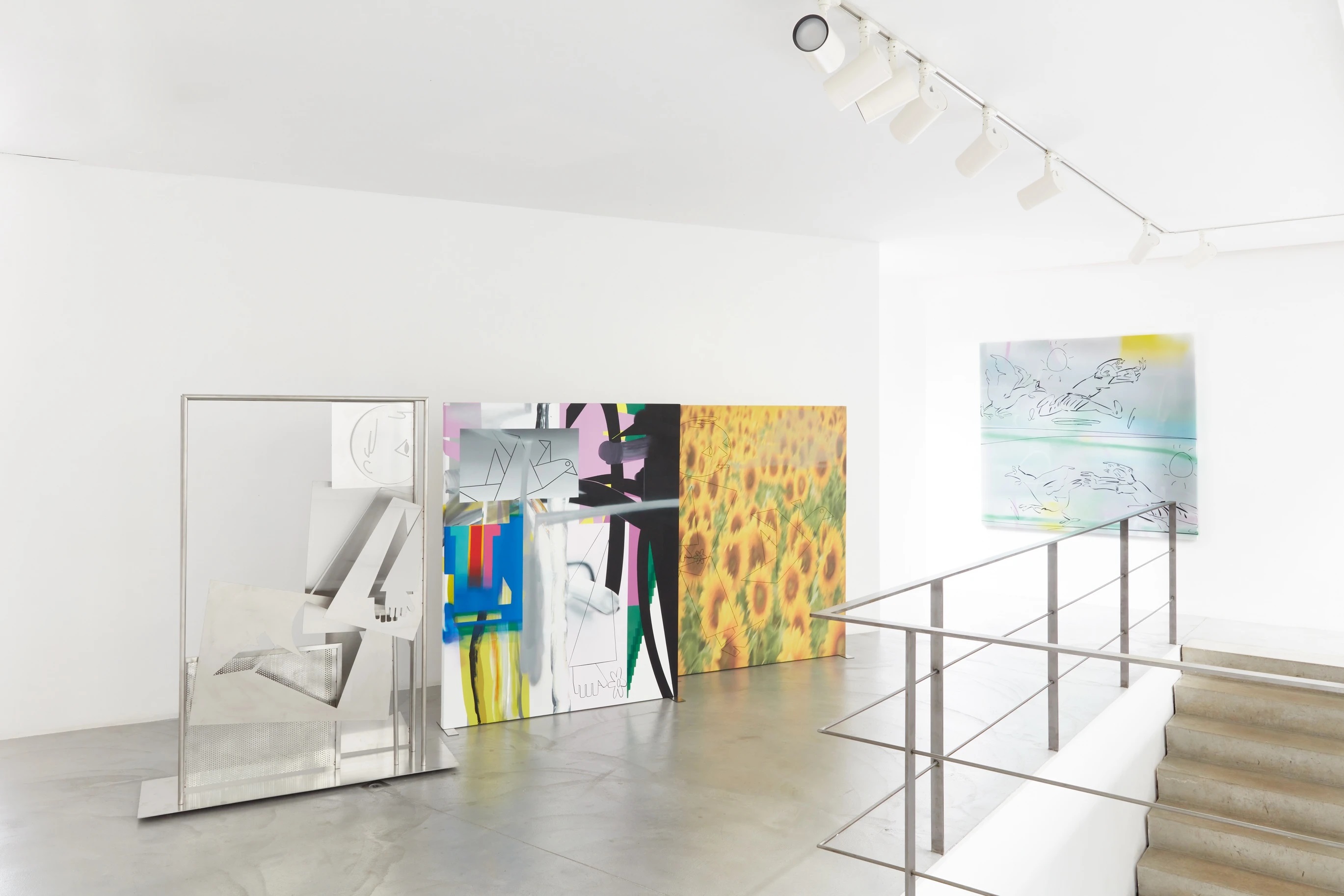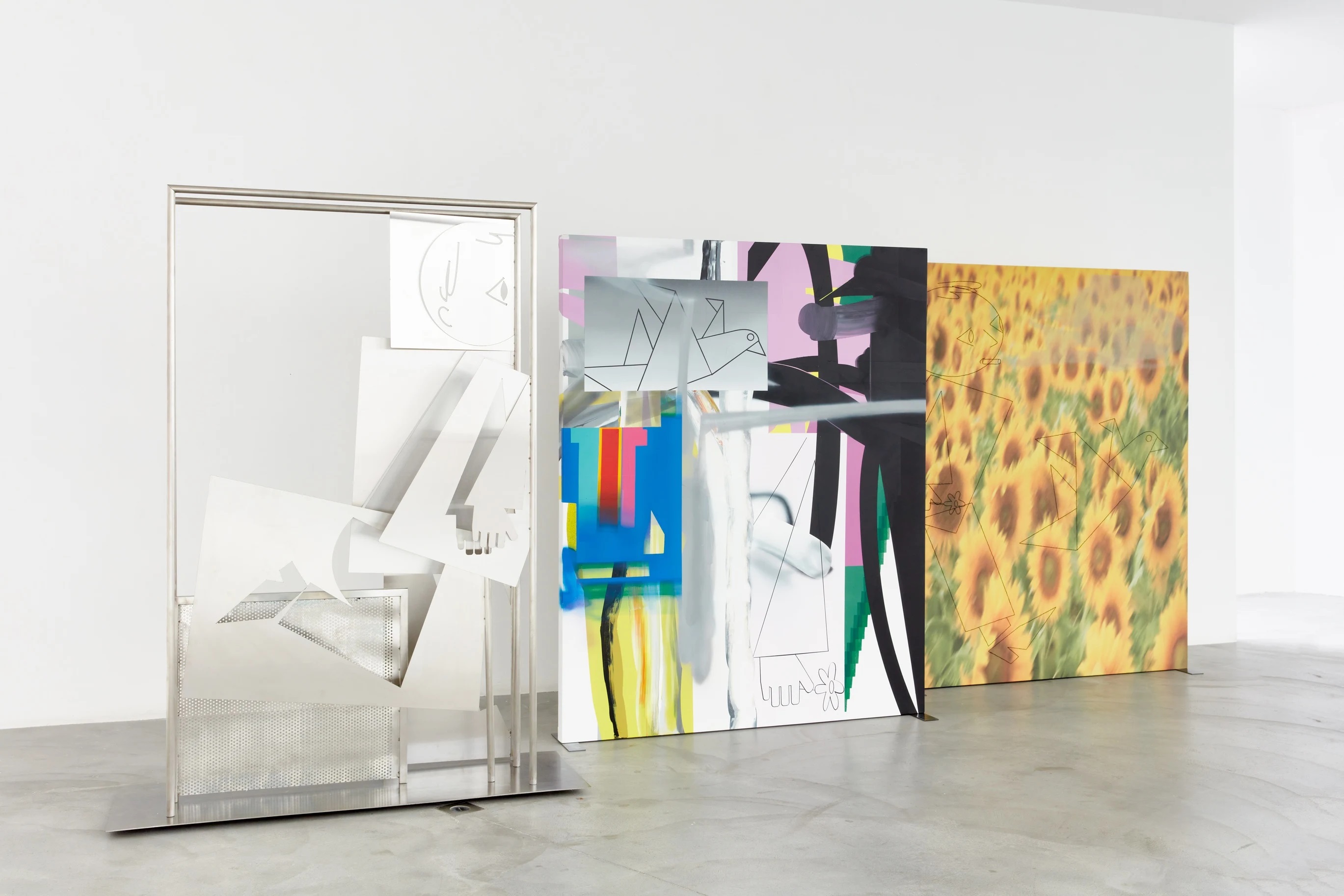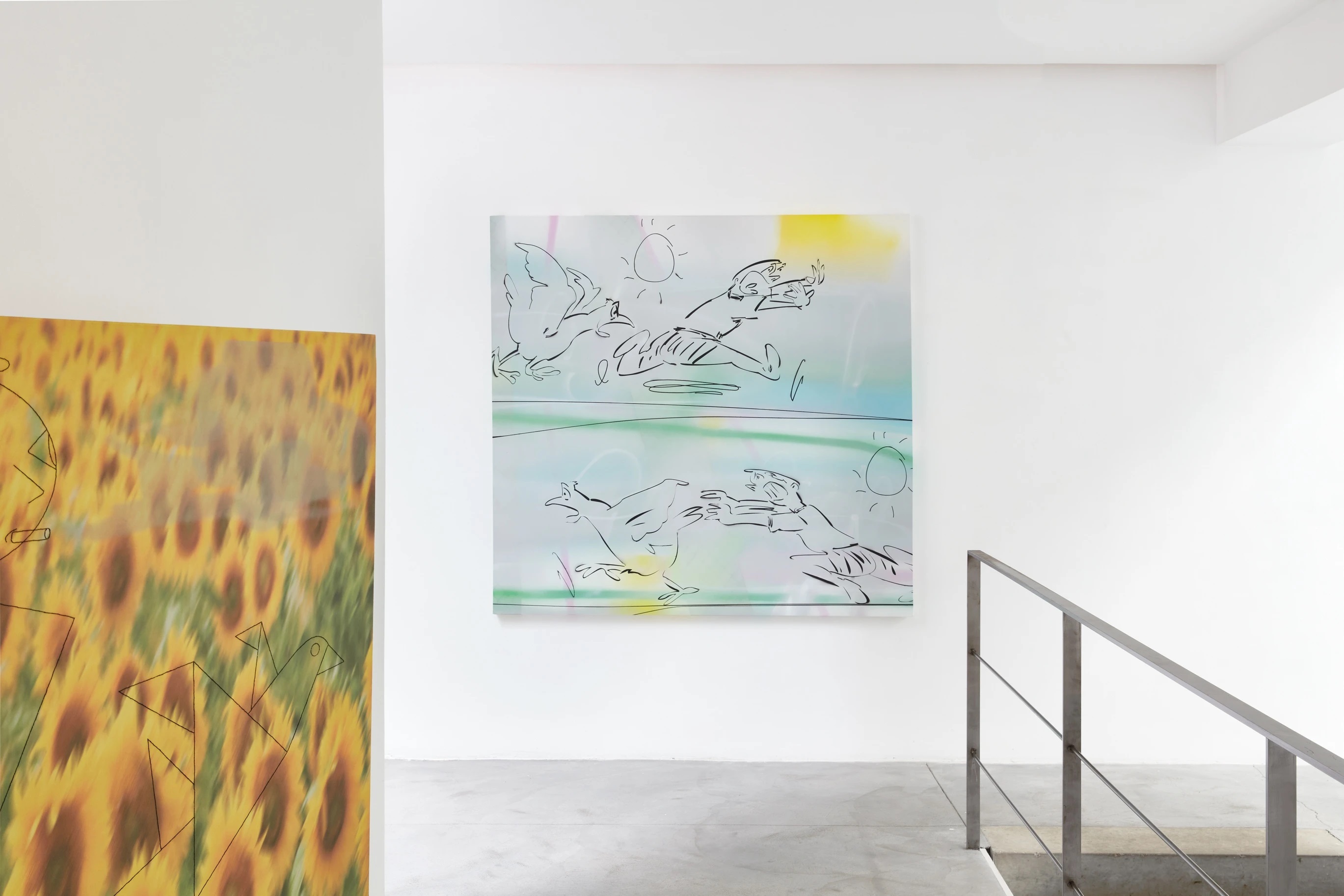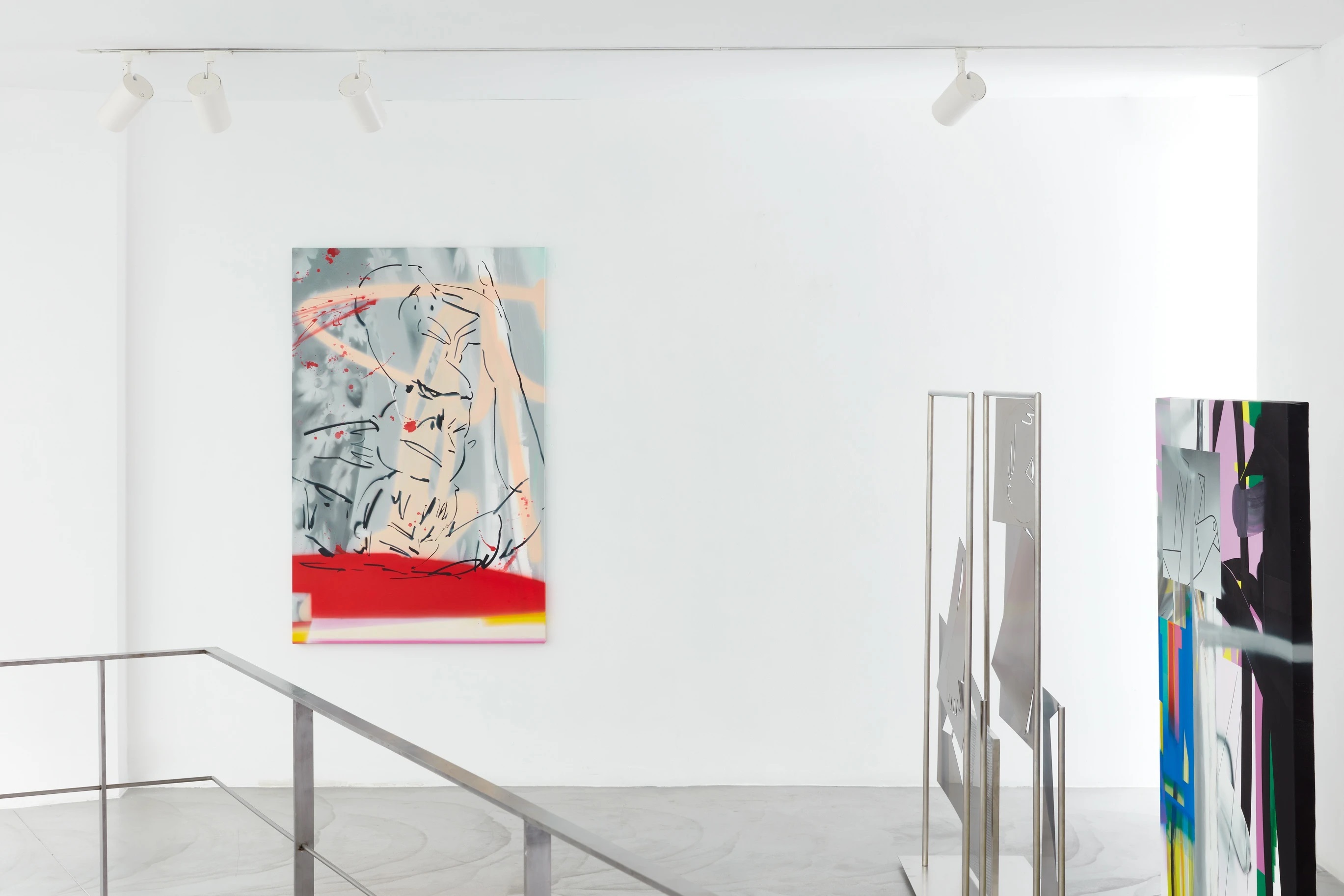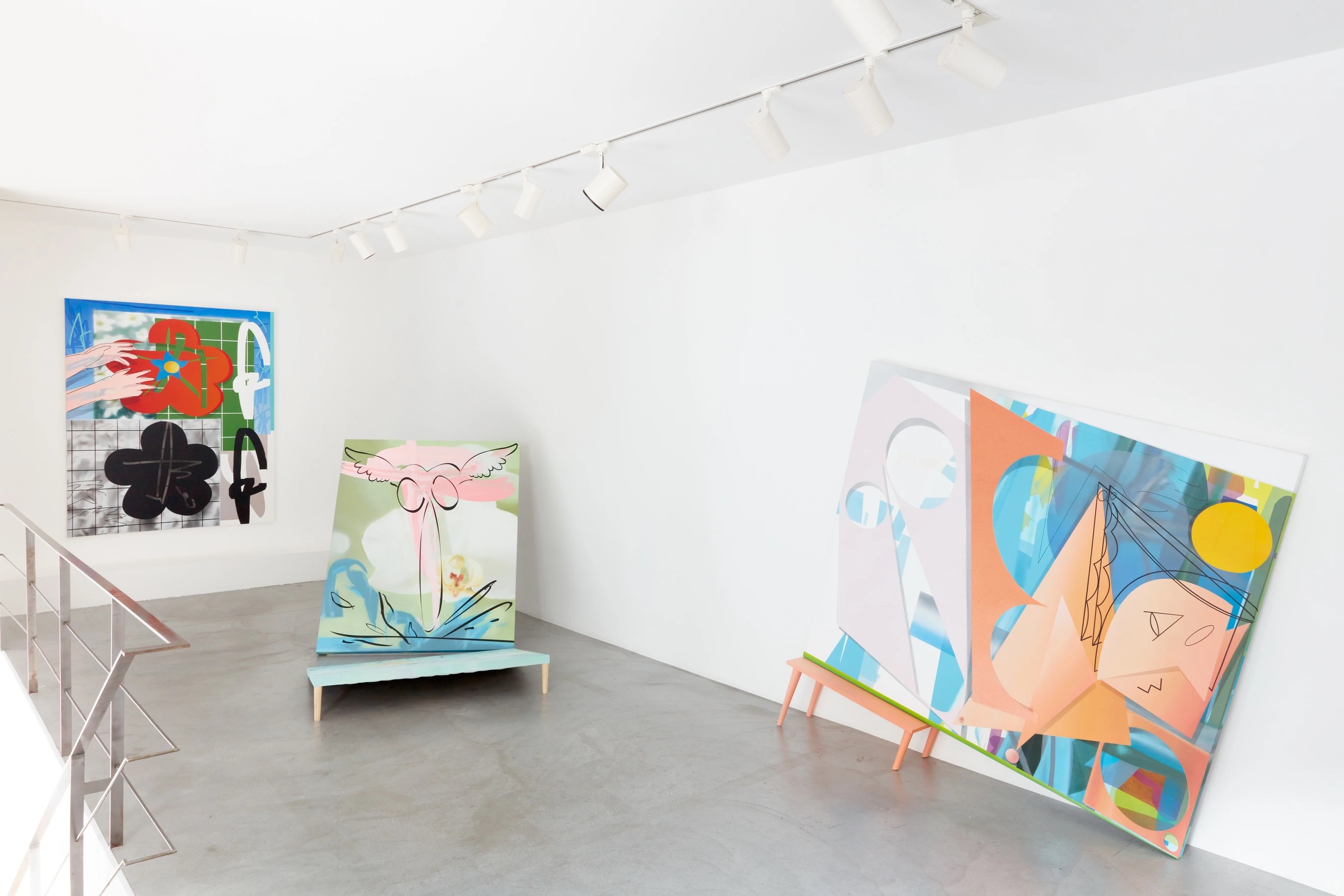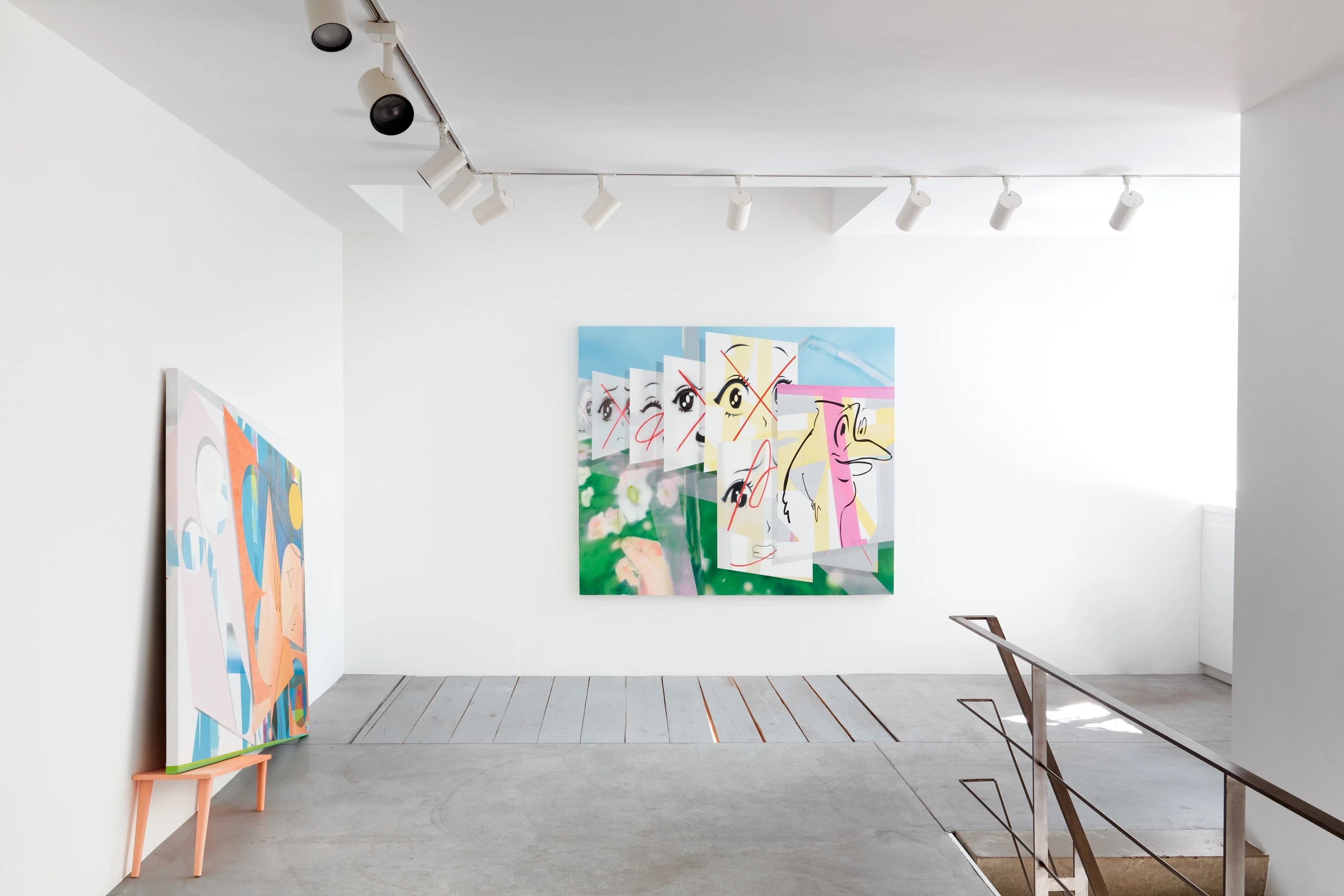Brussels,
3, rue du Cloître Saint-Merri - 75004 Paris
7 September 2023 - 21 October 2023
Galerie Nathalie Obadia Bruxelles is pleased to present Another world is waiting for us, the third solo exhibition by artist Hoda Kashiha at the gallery after Dear st. Agatha I am witness of your tears In the land of Tulips in 2020 in Brussels and I am here, I am not here, in Paris last autumn. The exhibition features a series of recent works produced by the artist in her studio on the outskirts of Tehran. Another world is waiting for us reveals the vitality of a burgeoning oeuvre that has acquired a prominent place in the Iranian art scene.
Born in Tehran in 1986, Hoda Kashiha initially studied painting in the Iranian capital before transferring to Boston University in the United States in 2014. After residing temporarily in the United States, the artist returned to Iran in 2016, where she decided to live and work. This international mobility enabled her to broaden her knowledge of the arts and, more broadly, her understanding of the world. At the age of 25, the artist discovered the american art scene, which was much larger than the one she had previously been exposed to in Tehran. The various courses she took had an impact on her pictorial vocabulary: her works are intersections of varied influences, oscillating between Cubism and a cartoonish style, with the Iranian socio- political situation as their central subject. Her paintings and installations depict subjects that derive from comic strips or cartoons, in a manner reminiscent of American Pop Art. However, unlike the thought bubbles that allow viewers to read the characters' emotions, Hoda Kashiha opts for the expressiveness of gesture and colour: the works vibrate with angular, round, expansive and slender shapes, painted in a chromatic palette that is at odds with reality.
Yet beneath their fantastical allure, these productions are very much rooted in the real world. For the artist, social networks are fertile grounds for reflection: they are places for all kinds of expressions, for demands and protests, where words and images abound. In a lively, vivid style, Hoda Kashiha expresses an irrepressible need for freedom, a means of expressing the state of urgency in which her country of origin finds itself. This series of recent works is a continuation of this commitment, addressing violence, power and the narcissistic gaze, all of which are strongly linked to the need for domination in contemporary society.
The exhibition features works that bear the weight of their extremely sensitive subjects. The paintings follow a fragmented narrative; the installations are poised as if to underline the instability of the world. Figurative motifs such as birds, human figures of undetermined gender, flowers and weapons appear as recurring themes in her work. As for the abstract forms, the visitor's eye is drawn to genitalia, sometimes male, sometimes female, sometimes jostling each other to the very edge of the canvas. The interweaving of these themes generates stagings that are as funny as they are alarming, allowing Hoda Kashiha to raise her voice against the war of the sexes, the question of identity and gender, which lies at the root of countless acts of violence around the world.
References to the history of art, but also to the artist's personal life, punctuate the exhibition space. A reproduction of Rembrandt's The Sacrifice of Isaac (1635) -with its depiction of a hand smothering an anonymous face, a blade pointed at its protruding throat- is paired with flowers and sunflowers, which in turn refer to Van Gogh and Hoda Kashiha's early youth. The flower is instrumentalised in order to convey the complexity of the world: the act of picking -as an attempt to capture beauty- is also the source of a kind of violence. The characters portrayed are driven by sometimes contradictory emotions. Running silhouettes, frozen faces, suffocating hands, brandishing flowers or weapons, all intertwine without the viewer knowing whether the subjects are experiencing pleasure or pain, having fun or fleeing danger, loving or despising each other. The preponderance of the colour red -reflected in both the bloodstains and the traces of lipstick- exacerbates this ambiguity: in Hoda Kashiha's artistic world, the boundary between sensuality and violence becomes imperceptible. The exhibition, bringing together these diversities, organises itself into a play of movements that are reminiscent of the Earth's orbit. In this way, Hoda Kashiha attempts to capture the skin of things and the world in its eternal revolution, oscillating between the invisible and the unspeakable.
As such, Another World is waiting for us holds up a mirror to our contemporary world. In the words of the artist, "this exhibition is like an earthquake". In this theatre of the real, where violence orchestrates both forms and feelings, the viewers try to find their way. And, in the midst of anger or fear, they might catch a glimpse of beauty, the promise of a better world awaiting us all.
